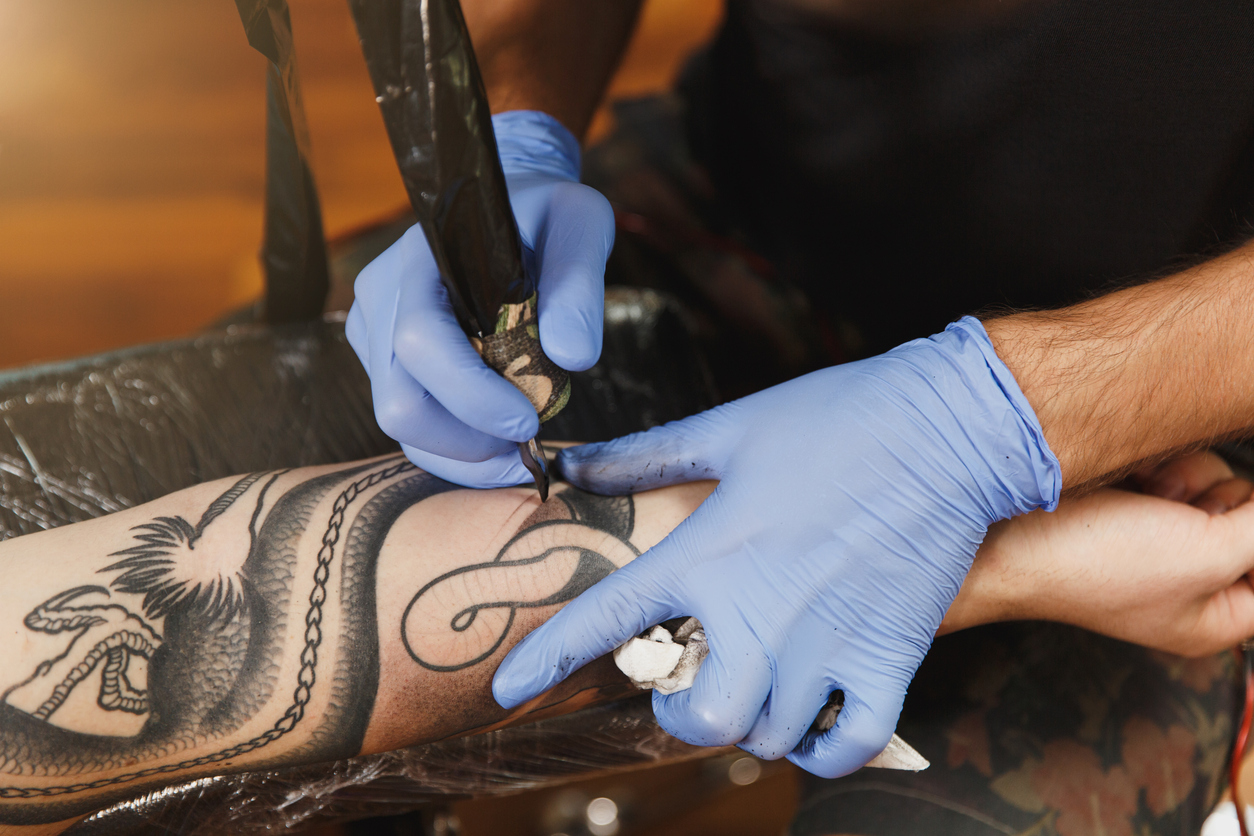Stephen Hasner | Personal Injury | October 28, 2020

When a person gets a tattoo, they expect to have a bit of discomfort followed by an artistic statement that they can carry with them to enjoy. A person does not expect to get an infection. However, infections can – and do – occur. Infections can vary from mild to severe and can occur due to a variety of reasons.
The Process of Tattooing
Tattooing involves a process of injecting dyes and pigments directly under the skin. Today’s tattoo artists use a tattoo machine. The tattoo machine has small needles that go up and down rapidly, somewhat like a sewing machine.
Before a tattoo is placed, a tattoo technician cleans the area and places a temporary tattoo in the area for the customer’s approval before the actual tattooing is begun. Once approved, the tattooing begins. The amount of discomfort for the customer depends on the size and placement of the tattoo. The process can take anywhere from an hour or two to several sessions over several days for larger, more complex tattoos.
Typical Causes of Tattoo Infection
Some pain and discomfort are normal after a tattoo. But when infection sets in, it is usually because bacteria has invaded the tattoo. This can happen at the tattoo parlor or after the tattoo has been put in place.
At the tattoo parlor, bacterial infection can occur if the needles are improperly cleaned or sterilized. Dirty needles are the most common cause of infection. Infection is also possible if the technician is inexperienced and fails to wash their hands, put on sterilized gloves, or forgets to clean the skin carefully before the tattoo is applied.
Aftercare is also important in the days after getting a tattoo. If a technician fails to provide sufficient aftercare instructions, a person may be at increased risk of developing an infection. Sometimes, the customer fails to take proper care of the tattooed area, and an infection develops.
Understanding Infections: What to Watch For
Some discomfort, redness, and swelling are normal after a tattoo. However, continued discomfort, or increased redness or swelling could be early signs of an infection. When the area feels hot to the touch this can also be a sign of infection. Likewise, a persistent fever is a sign of infection.
Some infections present as pus-filled blistering, or an abscess under the skin. Both conditions are serious and need medical intervention as soon as possible.
Red streaks on the skin in or around the area of the tattoo mean a serious infection. If a person experiences these symptoms, they should seek immediate help in an emergency room. This may be a sign of sepsis, which is a type of poisoning of the blood and can lead to death.
Treatment for Tattoo Infections
Treatments vary depending on the severity of the infection. It is likely that a doctor will want to rule out the presence of methicillin-resistant staphylococcus aureus (MRSA) and staph infection. Both are severe conditions. Beyond that, an infected tattoo may require antibiotics either administered orally or through an IV. These infections can take months to heal, depending on the severity of the infection. That means repeated doctor’s visits at the least. If the infection is severe, it could mean hospitalization.
Legal Implications
When a person’s aftercare is scrupulous and yet an infection begins, it is time to evaluate the conditions at the tattoo parlor. Local health departments may have information regarding the tattoo parlor and its health record. The health department will also keep records of customer complaints and any infractions of the health laws at the establishment.
A consultation with an experienced personal injury attorney can be instructive if you think the fault lies with the tattoo parlor. It could be that you have a personal injury claim against the tattoo parlor, the tattoo technician, or the business owner. These injuries can take months to heal and if the tattoo parlor is liable for negligence, you will want to have a personal injury attorney with you every step of the way.
Your attorney will conduct an investigation to determine the cause of your infection, determine where fault lies, and help you seek the compensation you rightfully deserve under the law. By filing a claim, you could potentially recover compensation for the cost of your medical treatment, lost income and wages if your injury prevented you from working, disability, and even your pain and suffering.
Having a lawyer represent you will let the tattoo artist, tattoo parlor, and insurance companies know that you’re serious and intend on seeing your claim through to the end.
Contact the Atlanta Personal Injury Lawyers at Hasner Law PC For Help
For more information, please contact the Atlanta personal injury law firm of Hasner Law P.C. at our nearest location to schedule a free consultation today.
We serve in Fulton County, Chatham County, and its surrounding areas:
Hasner Law PC – Atlanta Law Office
2839 Paces Ferry Rd SE #1050
Atlanta, GA 30339
(678) 888-4878
Hasner Law PC – Savannah Law Office
221 W York St
Savannah, GA 31401
(912) 234-2334


